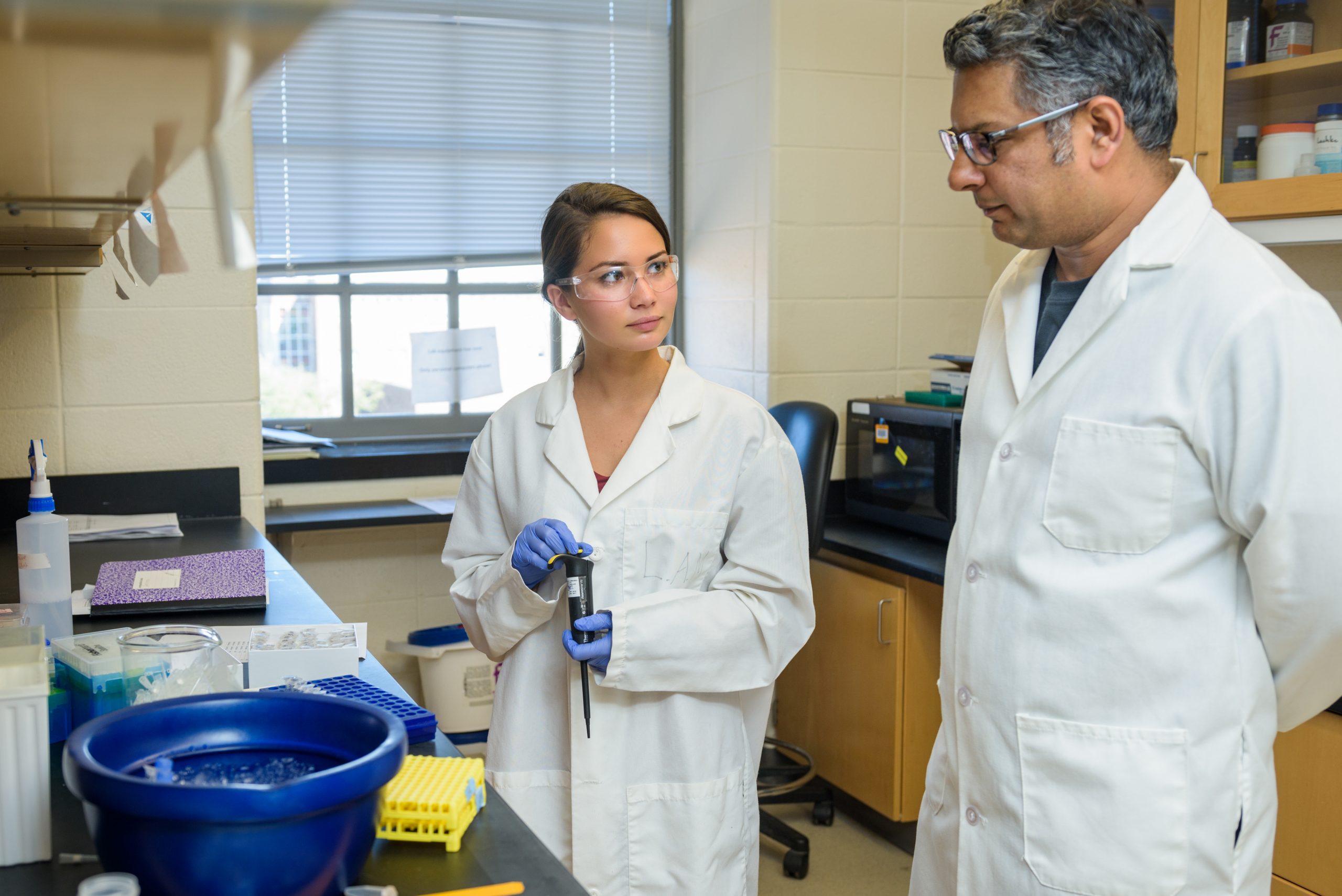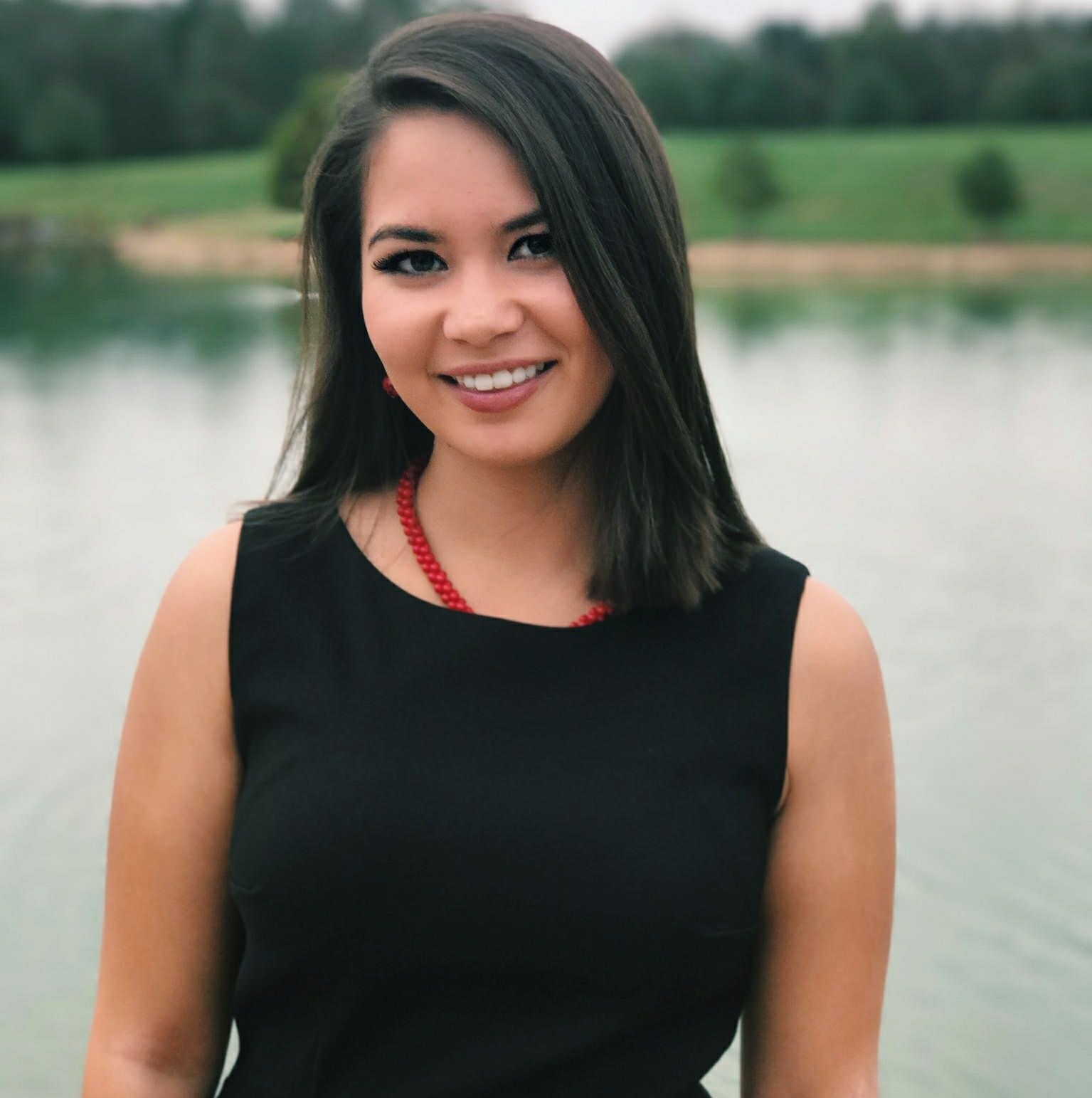
Scholar-elect Bailey Weatherbee will investigate the early stages of human life and seek to find why many pregnancies fail.
Post-implantation stages are referred to as the “black box” of development, and very little is known about these early stages when many pregnancies fail.
Bailey Weatherbee
When Bailey Weatherbee was six, she wanted to know why she didn’t have any brothers and sisters. Her parents explained that her father had a chromosomal defect that halved the chances of a successful pregnancy and that her mother had suffered five miscarriages after she was born.
That explanation jumpstarted an interest in developmental biology which has now led her to do a PhD at the University of Cambridge, working with Magdalena Zernicka-Goetz, Professor of Mammalian Development and Stem Cell Biology, in the human post implantation development team.
In 2016, Professor Zernicka-Goetz’s lab reported that it had grown human embryos in vitro beyond the implantation stage – up to 13 days after fertilisation. This allows researchers to analyse – for the first time – key stages of human embryo development up to 13 days after fertilisation. The research was elected as the “People’s Choice” for Science magazine’s “Breakthrough of the Year” and was also picked as one of the “Areas to Watch in 2017” by Science magazine.
Bailey[2019] had read about it as an undergraduate and was fascinated by it, given 60% of pregnancies fail by day 14.
Starting in the autumn, she will study epiblast development and the cell differentiation that gives rise to the formation of the amniotic sac. “Post-implantation stages are referred to as the “black box” of development, and very little is known about these early stages when many pregnancies fail,” Bailey says. She will analyse single cell sequencing and use 3D stem cell models to investigate differences in gene expression between the epiblast – the part of the embryo that gives rise to the whole body – and the amniotic epithelium [the amniotic tissue]. “The aim is to show how cell fate decisions are being made and why so many pregnancies fail,” she says.
Early interest in science
Bailey was born in Delaware, the second smallest state in the US. Her parents met in the Peace Corps in the Philippines. Her mother was working as a language instructor when her father, who is from the US, was stationed there. After three years they moved to the US. Bailey’s father is chief scientist at a company that does spectral mapping of natural resources and her mother worked her way up from a secretarial role to being vice president of card transactions at BNY Mellon.
As a child, Bailey showed an early interest in science and recalls doing experiments and star gazing with her father. In middle school she took part in a Science Olympiad which her father coached. Bailey then attended a charter high school which was focused on STEM. She became more and more interested in developmental biology and was keen to do research on stem cells. So, she emailed a professor at the University of Delaware and ended up working on a project looking at morphology changes and cell death in mouse muscle stem cells. She says the experience, as well as leading to school and regional awards, made her realise that she wanted to spend the rest of her life in academic research. She continued to work at the laboratory for the rest of her time at school.
Bailey applied to seven different universities to study biology and opted for the University of Delaware since it offered her a full-tuition scholarship as well as a very supportive research environment. She was named a Telkes Scholar by the Honours Programme in recognition of her research potential. The scholarship gave her a tight-knit community. Bailey also did minors in biochemistry, political science and writing as well as an applied music minor in piano.
The four-year programme included a five-week study abroad period for her political science minor which Bailey spent in Spain and Rome.
Developmental genetics
For the past three years she has been working in the developmental genetics laboratory under Professor Salil Lachke, studying ocular lens development. Her focus is on the role of RNA-binding protein-mediated post-transcriptional regulation in mammalian ocular lens development and how this links to the formation of cataracts. Bailey has identified how an RNA-binding protein controls expression of a key transcription factor – a protein involved in the process of converting, or transcribing, DNA into RNA – that, when misregulated and not working correctly, may cause cataracts. This research will be published shortly. Bailey is also co first author of another paper on validating a human lens epithelial cell line.
In addition to her academic work, Bailey is also active in education access work, politics and science engagement.
Her family background gave her a strong belief in education access. Her mother was very poor as a child and her grandmother was a teacher, and both stressed to her that the only way to break the poverty cycle was through education. Where Bailey grew up in Wilmington, Delaware, there is a lot of poverty and a high murder rate. In high school, Bailey was chosen to be a representative on the Youth Philanthropy Board of the Delaware Community Foundation. The Board had to review grant applications and distribute $15K of grants to at-risk youth programmes. One of the applications was from the Leading Youth Through Empowerment programme run by a local teacher. It aimed to help children from deprived areas get into good public schools, offering after school and summer classes as well as seminars for parents on how to apply for financial support. Bailey fell in love with the programme and the children and has been working for it ever since, managing the programme’s social media, tutoring and helping young people once they are at high school. Last summer she taught an English course. The programme has recently expanded to include official high school programming and to reach out to more children.
In addition, while at the University of Delaware, Bailey founded a political club, the Young Progressives, right after Donald Trump was elected. “I am interested in grassroots organising and getting young people to volunteer and learn about how the criminal justice system works,” she says. She has also worked on the recent midterm elections and brought Alexandria Ocasio-Cortez to speak at the University of Delaware.
Bailey’s other interests include science advocacy and she has done the American Society for Biochemistry and Molecular Biology’s Advocacy Training Programme through which she met US senators and representatives to talk about STEM education and funding for after school programmes for at risk youth and for research.
Ultimately, she wants to stay in academia while also continuing to advocate for at-risk youth in education and for public understanding of science.
*Picture credit: Evan Knape, University of Delaware Office of Communications and Marketing

Bailey Weatherbee
- Alumni
- United States
- 2019 PhD Physiology, Development and Neuroscience
- Jesus College
Since childhood, I was always fascinated by developmental biology. I wanted to understand how a single cell could become a complex organism. After matriculating as an Honors Biology student at the University of Delaware, I joined Dr. Salil A. Lachke’s developmental genetics laboratory where I studied the role of RNA-binding protein-mediated post-transcriptional regulation in mammalian ocular lens development. Simultaneously, I explored my passions for education access and science advocacy. Since 2014, I’ve worked with Leading Youth Through Empowerment – a non-profit that offers accelerated coursework to high-achieving at-risk youth. I also participated in the American Society for Biochemistry and Molecular Biology’s Advocacy Training Program through which I met with the offices of my senators and representative to advocate for science funding and education.At Cambridge, I will carry out my Ph.D. project in the laboratory of Dr. Magdalena Zernicka-Goetz studying the post-implantation development of human and mouse embryos. Post-implantation stages are referred to as the “black box” of development, and very little is known about these early stages when many pregnancies fail. Recently, Dr. Zernicka-Goetz’s group developed a culture system that opened this “black box” and I look forward to finding what lies within it. I am honored to join the motivated and interdisciplinary Gates Cambridge community.
Previous Education
University of Delaware Bachelor of Science in Biological Sciences 2019












